Have you ever wondered about what the different roles with the Division of Plant Industry entail? On our blog, we will be highlighting a different position at DPI each month in a “Day in the Life” series. Each “Day in the Life” post will follow a regular day in the life of the featured person to get a look inside what they do in a typical day on the job.
For our inaugural Day in the Life post, we are shadowing plant inspector, Brian Alford.
Brian has been with the Division of Plant Industry for over 10 years, but a plant inspector for only 18 months, serving Levy, Dixie, Suwannee, Gilchrist and Lafayette counties.
Brian begins his day in the office by preparing the necessary paperwork required to complete his inspections for the day. Plant inspectors conduct a few different types of inspections, including a nursery/stock dealer inspection for nurseries that sell plants except citrus and a Citrus Health Response Program (CHRP) inspection for the nurseries that do sell citrus trees.
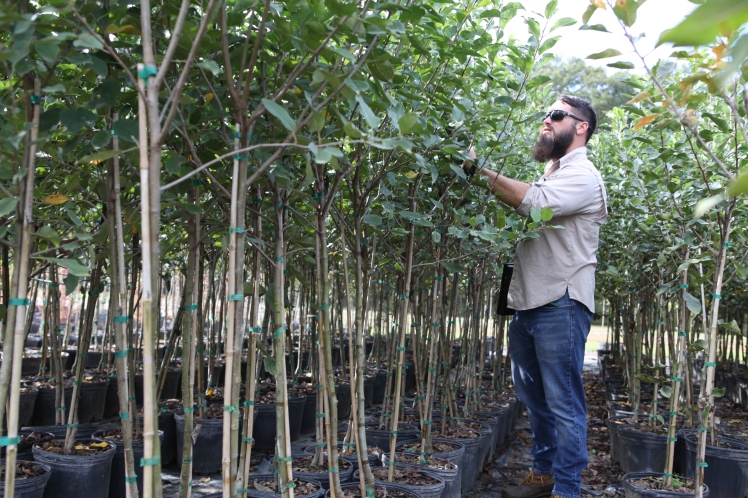
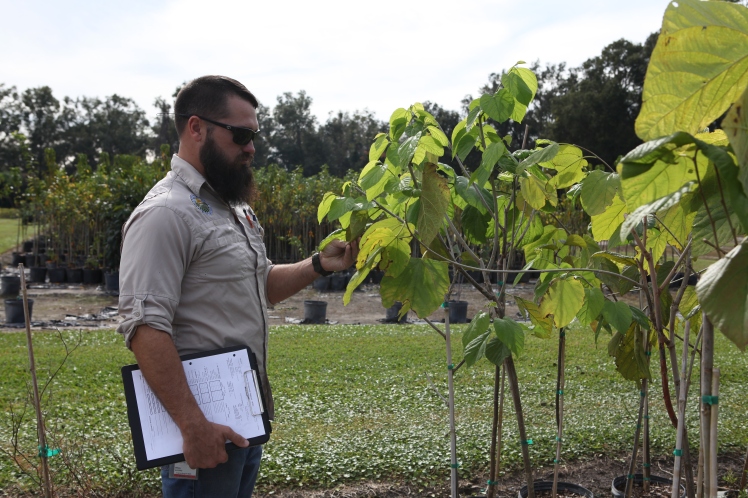
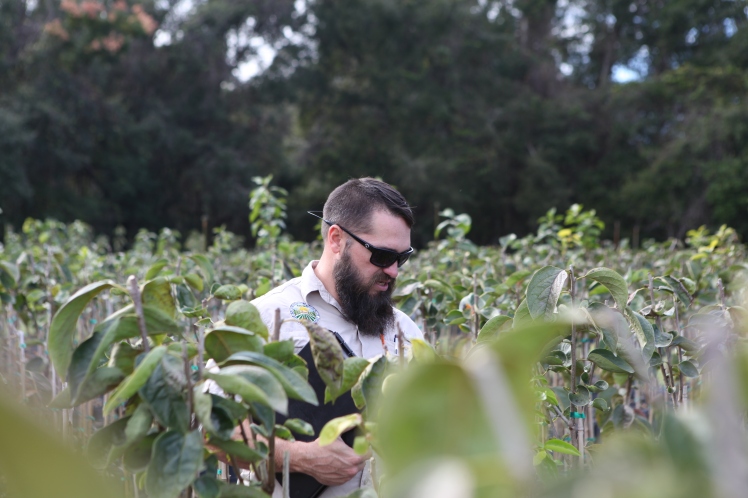
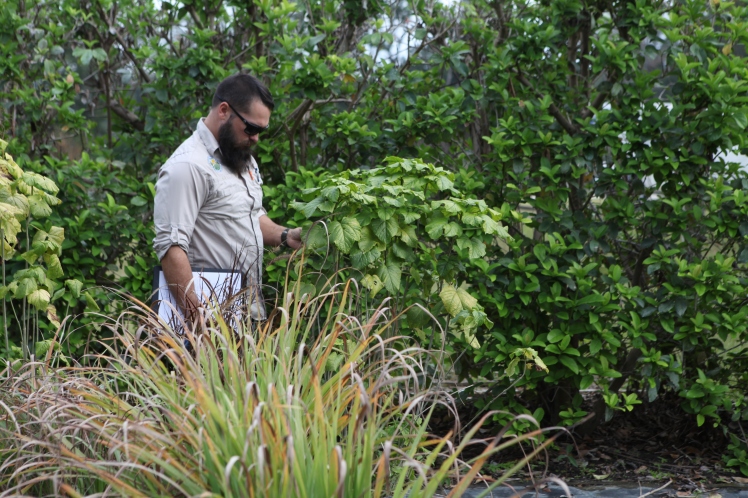
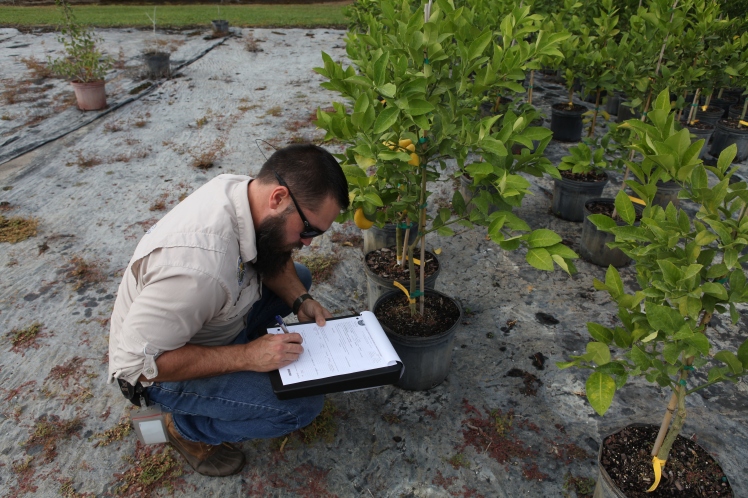
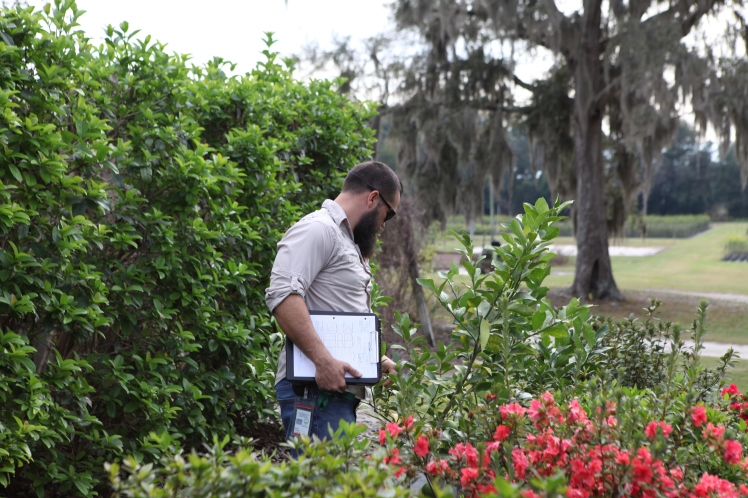
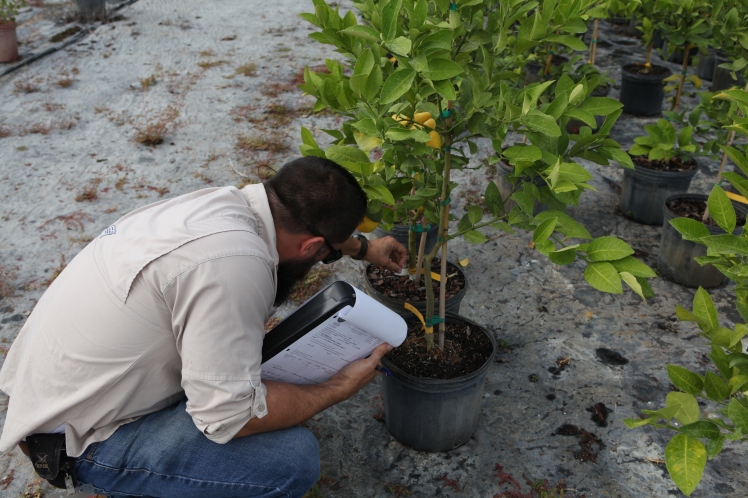
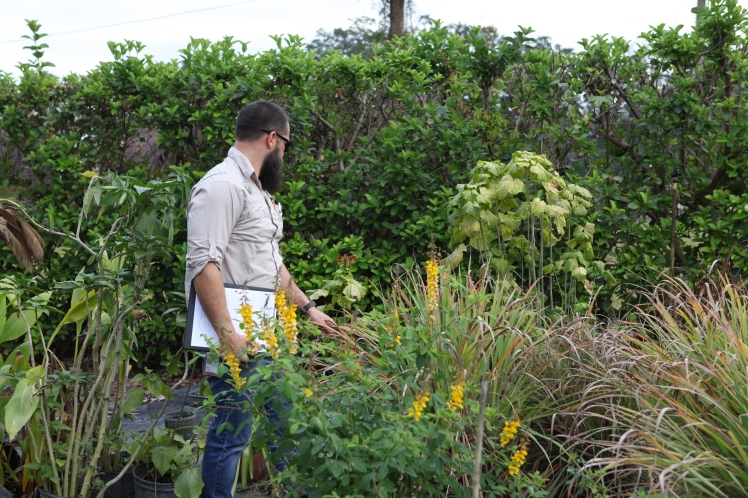
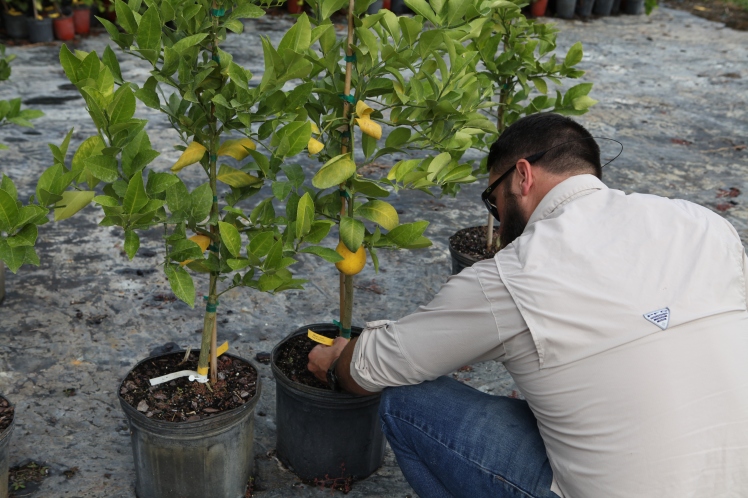
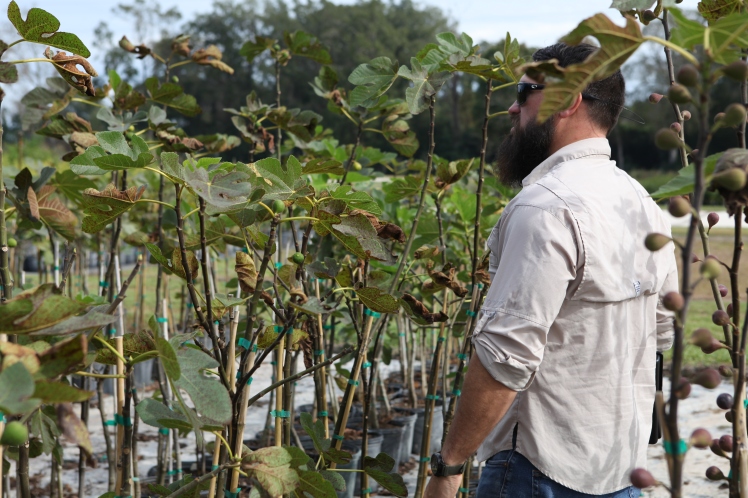
Brian typically conducts his inspection by walking through a property to look at all the plants in inventory. Some plants beyond a specific quantity are not allowed to be sold at one time, therefore plant inspectors must verify the number of plants on site.
During his inspection, Brian looks for any obvious signs of disease or pests by checking the color and condition of the leaves or fruit, checking the underside of leaves for any scales or discrepancies, and the general look of the plant.
If something out of the ordinary is found, Brian collects a sample to submit to the Bureau of Entomology, Nematology, and Plant Pathology (ENPP) for testing and analysis.
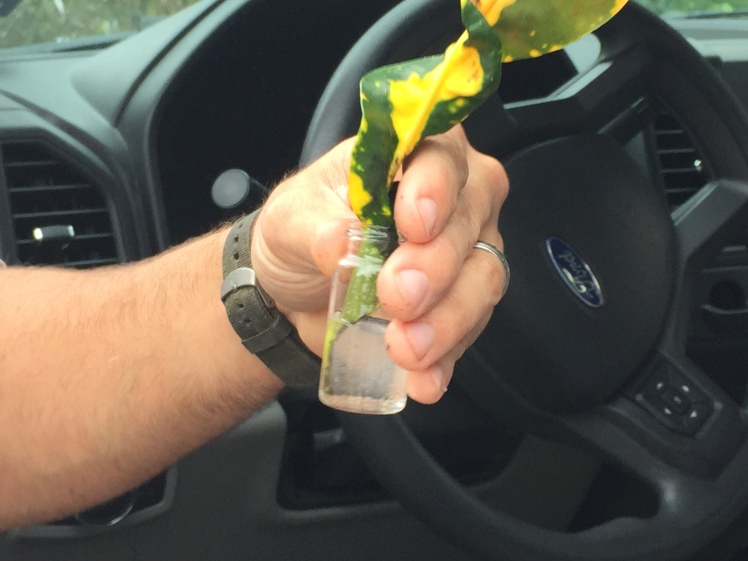
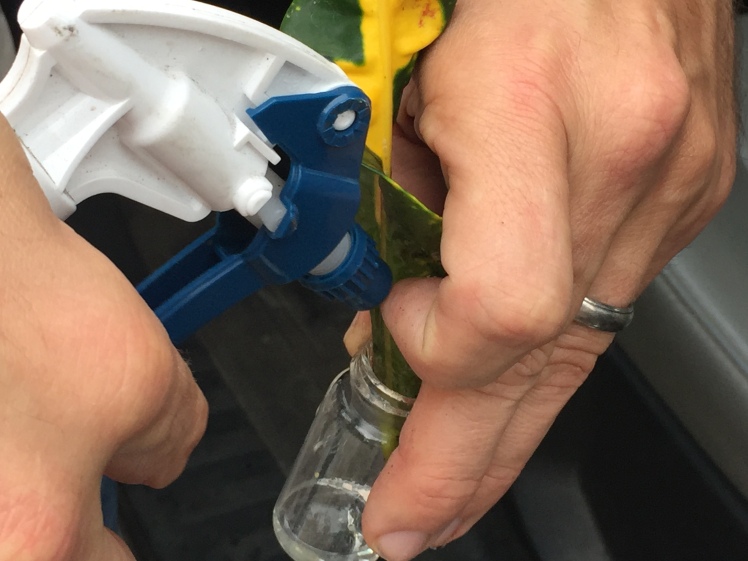
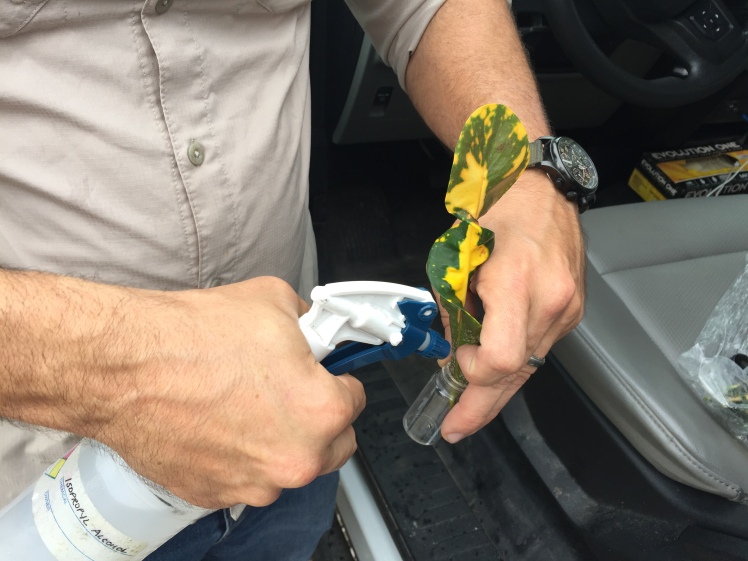
When leaving each nursery, it is important to disinfect your clothes and shoes to keep from transporting any pests or diseases from one location to another. This practice is especially important when inspecting citrus trees as the state of Florida continues to battle with several types of citrus related diseases.
Sometimes being a plant inspector requires a food inspection at grocery stores if a pest is detected.
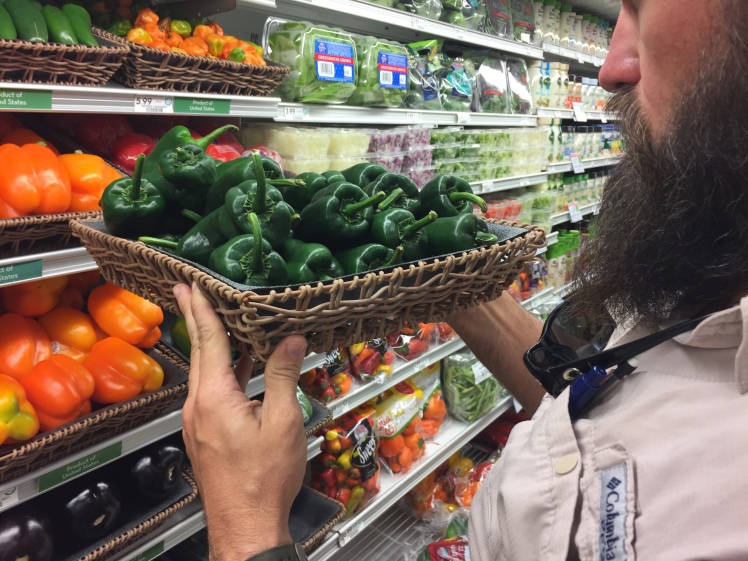
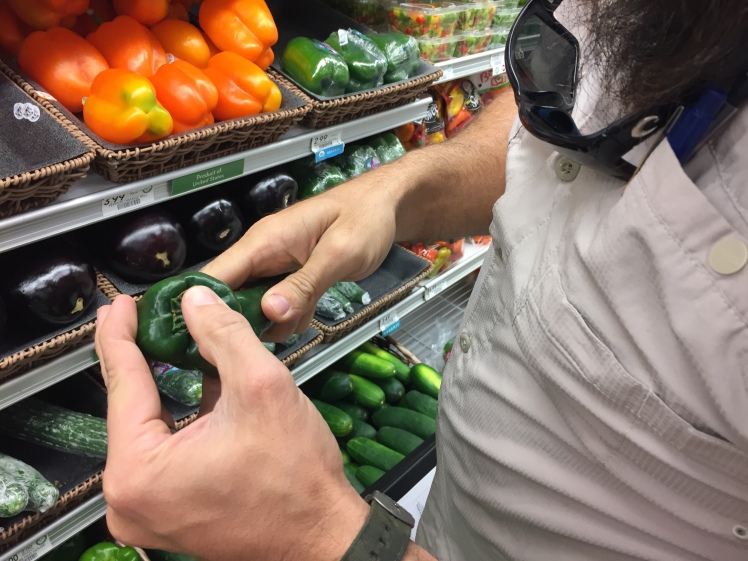
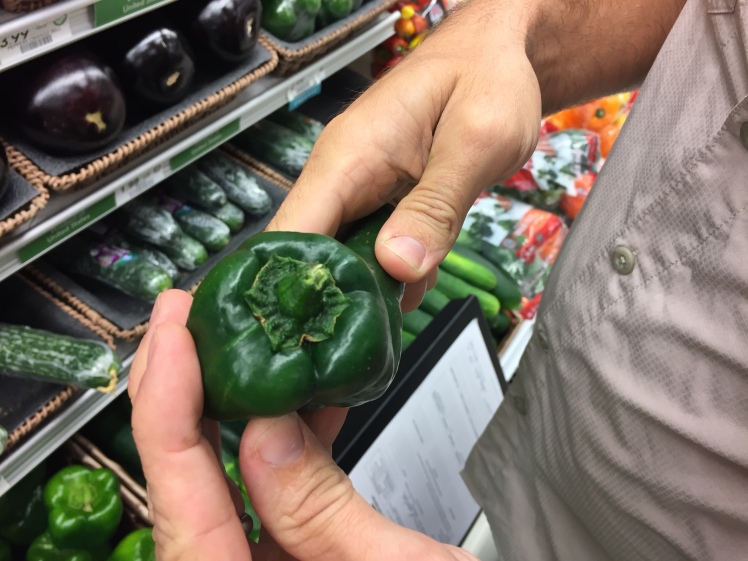
Brian and all plant inspectors are responsible for inspecting all their assigned nurseries once a year, and quarterly for citrus stock nurseries. This requirement keeps DPI inspectors very busy throughout the year, as most individual inspectors are solely responsible for anywhere between 100 and 150 nurseries.
Brian shared his favorite part about his job is the opportunity to be and work outside all day, as well as interact with the nurserymen and people he sees every day.
Plant inspectors must stay up-to-date on all major pests and diseases targeting Florida’s agriculture as well as the signs and symptoms they present in the plants. Brian explained this part of his job causes him to rely on ENPP, almost daily, in order for him to be able to do his job well.
“In some shape, form or fashion, they are helping me everyday identify a plant or pest via samples. Even nurserymen will ask me about the things they see so I can ask ENPP what is needed in order to help them identify the sample,” said Brian.
Being a plant inspector for the Division of Plant Industry is an important and necessary job to help safeguard Florida’s agriculture. Inspectors participate in weeks of rigorous training in order to learn about entomology, nematology, plant pathology and botany. This knowledge allows them to be the best at their job when they are in the field, and in all aspects of being able to protect Florida’s plant and apiary industries.






